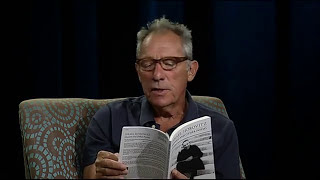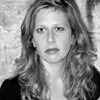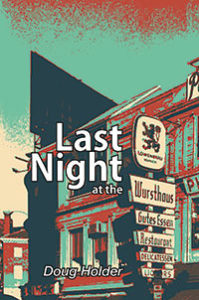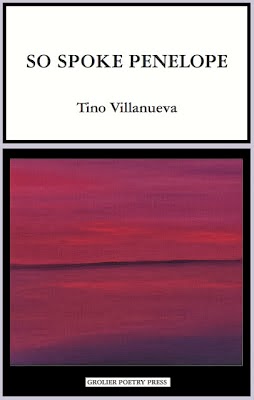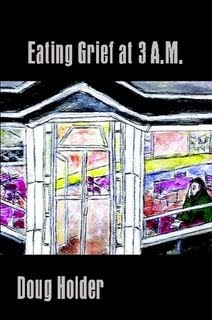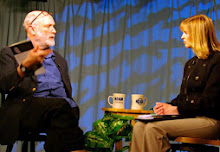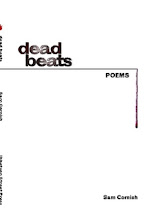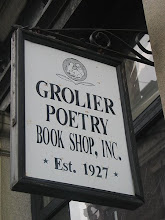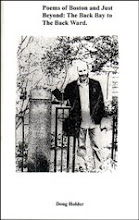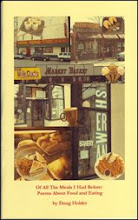 |
| Luke Salisbury |
 |
| Jean Dany |
Starving Moon
By
Luke Salisbury
Millennium
Resolution
By
Jean Dany Joachim
JEBCA
Editions
ISBN:
13: 978-1-68084-051-3
41
Pages
Review
by Dennis Daly
Love
and friendship in times of license and freedom often go amiss,
derailed by life’s pedestrian complications. Prescribed
relationships, on the other hand, monitored by their context in
society and tempered by existential considerations or overarching
cultural institutions reduce the tragedy and drama in everyday life
to an acceptable expectation level. There’s the rub. Unpredictable
extremes of behavior make life not only more interesting, but also,
infused by unwieldy passion, more creative.
In
this dual publication Starving Moon/ Millennium Resolution writer
Luke Salisbury and poet Jean Dany Joachim set up a compelling
proposition and a stunning response with verve and spot-on tonality.
Salisbury expertly provides the proposition in the form of a
well-wrought short story. Joachim completes the narrative with a free
verse poem that delivers an odd but very unique physicality. Together
both literary pieces combine into a rather heartfelt, unified, and,
more importantly, mesmerizing story.
The
action takes place “in the summer of 1972, which was really the
last summer of the sixties.” Sex, rock and roll, some drugs, and a
lot of booze abound. Primarily Salisbury chronicles two couples in
their evolving/ devolving relationships: Mark (the narrator) and his
new love, Carol; and Peter and Gretchen, the star-crossed couple. All
have histories, although Gretchen’s is particularly vague. Damaged
people meet lesser damaged people and cling. Doo-wop, Del Shannon,
and Sam Cooke are piped into the mnemonic sound system at appropriate
times adding to the texture.
While
one relationship evolves, the other is toxic and spirals downward.
True love offers up the irony, since both relationships have it.
Friendships are woven-in complications. The character of Carol really
amuses me. She is a straight-talking corrective to her boyfriend,
Mark the narrator. I must say, this plot line works wonderfully well.
One
exquisite section of prose sticks with me as I write this. Salisbury
speaks of love’s demise not as a loss of sentiment and passion, but
rather the dissolution of a dynamic, a world view. He explains that
everyone knows this to be true. That seems right somehow. Here’s
the section,
… Time
is dead. The
person
you love, the person you know, isn’t there
anymore.
Isn’t here. Isn’t yours. You’re not really
here
either. You’re in limbo because you’re
together
but you’re not. You’re alone. But you’ll
be
more alone. You hurt. But you’ll hurt more.
The
past won’t save you. Things don’t work
anymore
and you can’t do anything about it. The
person
you love, the body you can’t imagine being
without
or touching someone else, is a ghost. You
touch
it but you aren’t touching it. You’re a ghost.
Objects,
chairs, cars, snow, don’t look the same.
Buildings,
trees, the sky, get super real. The
outline
of things gets too sharp. You know what’s
coming…
Just
how alone are we in this world? Salisbury pretty much ends his story
meditating on this question. His protagonist/ narrator watches
through memory’s window as life’s stories replicate, perhaps
changing slightly, over twenty years until things make sense.
Although this narrative is far from being a comedy, it does have a
comic outlook where acceptance, not remedial change, proffers
resolution.
Embedded
in Salisbury’s short story, Joachim’s poetic persona comments
through the medium of his poem, entitled Millennium Resolution,
identifying with one of the characters, Peter, and vowing to change
the pattern of his own life. In the background bells toll from the
tower of Trinity Church on St. Catherine Street in downtown Montreal.
Consider these lines in the heart of the poem,
I
was already swallowed by the “Starving
Moon”
A
cold chill filled my whole body,
That
kind one experiences in very scary moments
The
same kind immigrants often feel
When
dealing with immigration agents
I
discovered myself in the pages of the story:
I
had Peter’s face
So
obsessed with doing the right thing,
And
wanting to be Jesus too—In this fast moving
World.
The
poet ties himself even closer to Salisbury’s Peter character in the
penultimate stanza of his piece. He signals a new understanding
before the millennium,
Peter
went to another woman,
Peter
went back to Gretchen,
And
Peter never noticed Peter
The
way I missed myself for so long
There
were only two rings left
Of
the twelve sounds of midnight
The
first hour was almost final…
Both
Salisbury and Joachim are well known literati in the Boston area.
Salisbury is the author of Baseball Is the Answer and three other
works of fiction. Joachim is a past Poet Populist of Cambridge,
Massachusetts and the author of three collections of poetry. They are
currently selling this book at readings. If you are in the northeast
area, track them down. For God’s sake stalk them. Get this book.








